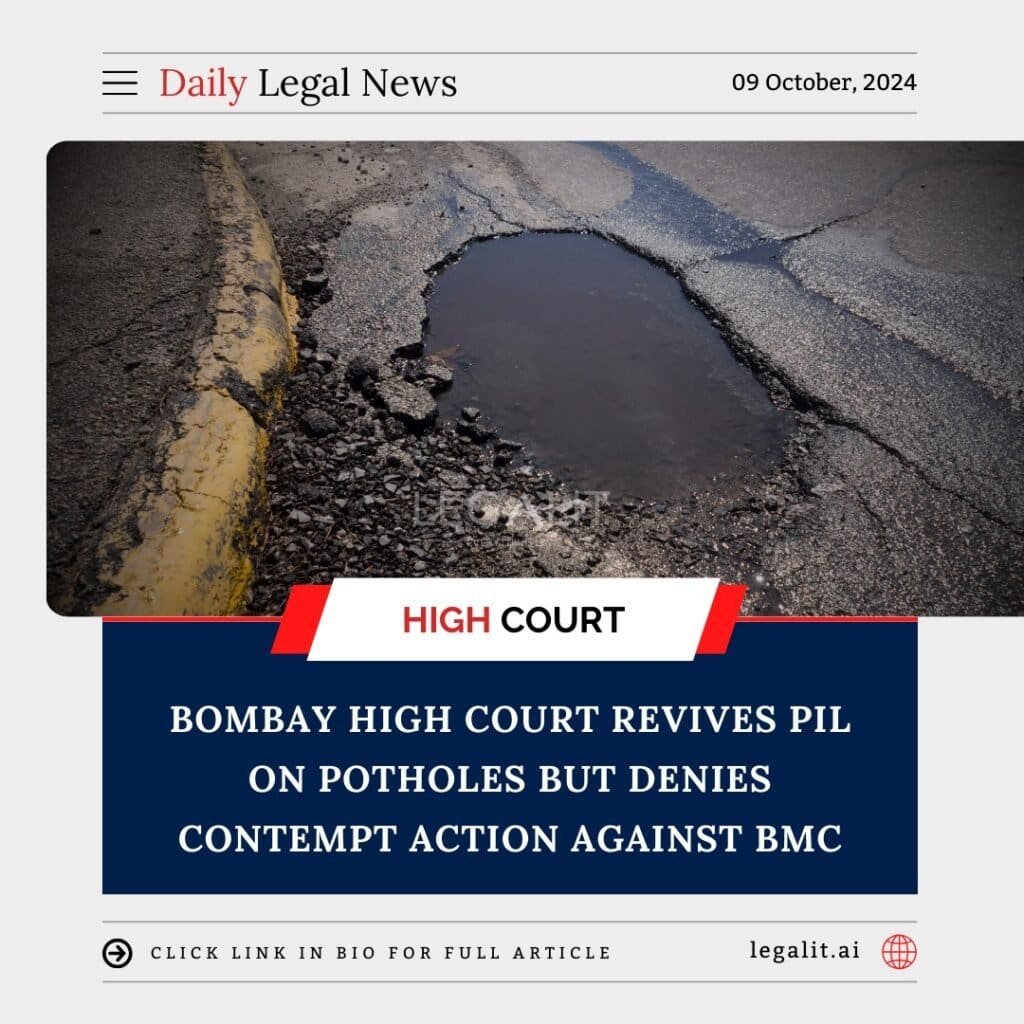
Introduction:
In a significant development, the Bombay High Court has revived a Public Interest Litigation (PIL) addressing the persistent issue of potholes in Mumbai. However, the court has refrained from taking contempt action against the Brihanmumbai Municipal Corporation (BMC), which has faced criticism for its inadequate response to the issue.
Background of the PIL:
The PIL was initially filed to compel the BMC to take urgent measures for repairing potholes, which pose serious safety hazards for motorists and pedestrians alike. Over the years, the issue of potholes has garnered substantial public attention, especially during the monsoon season when the problem intensifies. The PIL reflects the collective frustration of citizens over the government’s inability to ensure safe road conditions.
Court’s Ruling and Reasoning:
While reviving the PIL, the Bombay High Court acknowledged the grave concern regarding the condition of roads in Mumbai. The court noted that despite previous orders and assurances from the BMC regarding road maintenance, the situation had not improved significantly.
However, the court declined to initiate contempt proceedings against the BMC, suggesting that while the municipal corporation must be held accountable, there may be other avenues to address the ongoing pothole crisis. The decision indicates the court’s intent to foster cooperation between the judiciary and the BMC to resolve the pressing issues without resorting to punitive measures.
Implications of the Judgment:
- Increased Scrutiny on BMC: The revival of the PIL ensures that the BMC will remain under scrutiny regarding its road maintenance practices. This ongoing legal pressure may motivate the corporation to prioritize repairs and improve its infrastructure.
- Public Accountability: The court’s decision reinforces the idea that public agencies must be held accountable for their responsibilities. It also emphasizes the role of citizens in advocating for their rights to safe and well-maintained public infrastructure.
- Potential for Reforms: The revived PIL could lead to broader discussions on urban planning and infrastructure management in Mumbai, potentially paving the way for legislative and administrative reforms.
Conclusion:
The Bombay High Court’s revival of the PIL concerning potholes in Mumbai is a pivotal step toward ensuring safer roads for the city’s residents. While the court chose not to pursue contempt actions against the BMC, it has highlighted the need for continued vigilance and accountability from public authorities. As the case progresses, it remains to be seen how the BMC will respond and whether meaningful changes will emerge in the city’s infrastructure management practices.